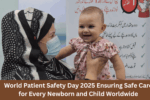Benzodiazepines are medicines commonly used to treat anxiety, insomnia, and other health issues. Recently, doctors in the United States have noticed a significant rise in prescriptions for these drugs. While they can be helpful when used correctly, growing concerns exist about misuse and dependence among patients.
This article explains why benzodiazepine use is increasing, the dangers linked to misuse, and what young people should know to stay safe. Understanding these issues is important as more people turn to these drugs for relief during stressful times.
What Are Benzodiazepines?
Benzodiazepines, often called “benzos,” are a group of medications that work on the brain to produce a calming effect. They help reduce anxiety, panic attacks, and help people sleep better. Common benzodiazepines include drugs like Valium, Xanax, and Ativan.
Doctors prescribe them for short-term use because they can be very effective. However, long-term or incorrect use may lead to serious problems such as addiction or withdrawal symptoms.
Why Are Prescriptions on the Rise?
There are several reasons why more people in the US are getting benzodiazepine prescriptions. One major reason is the increase in mental health issues like anxiety and insomnia, especially during and after the COVID-19 pandemic. Many young adults find it hard to manage stress, leading more doctors to recommend these drugs.
Additionally, benzodiazepines are sometimes seen as a quick fix compared to therapy or lifestyle changes. With easier access to healthcare and more awareness about mental health, prescriptions have naturally gone up.
The Dangers of Benzodiazepine Misuse
While benzodiazepines can be helpful, misuse is a serious concern. Misuse means taking the drug in a way not prescribed, such as higher doses or combining with other substances like alcohol. This can lead to dangerous side effects including slowed breathing, memory problems, and increased risk of accidents.
Over time, the body can become dependent on benzodiazepines, making it difficult to stop using them. Withdrawal symptoms may include anxiety, seizures, and sleep problems, which can be severe without medical help.
Young People and Benzodiazepines: What to Watch For
Young adults should be particularly cautious with benzodiazepines. Misuse can start with “recreational” use or sharing prescriptions with friends, which is unsafe. The mix of benzos with other drugs or alcohol increases the chance of overdose.
Education and awareness are key. If anyone feels they need help with anxiety or sleep issues, talking to a healthcare professional is the safest path. Also, understanding that medication is just one part of the treatment is important.
How to Use Benzodiazepines Safely
Doctors recommend using benzodiazepines exactly as prescribed and for the shortest possible time. Patients should never increase their dose without consulting their doctor. It’s also important to avoid mixing these drugs with alcohol or other depressants.
Regular check-ups with a healthcare provider can help monitor the effects of the medicine. If side effects or dependence signs occur, seeking medical advice immediately is crucial.
Alternatives to Benzodiazepines for Anxiety and Insomnia
Many safer options exist besides benzodiazepines. Therapy like cognitive-behavioral therapy (CBT) helps tackle anxiety and insomnia without drugs. Relaxation techniques, exercise, and good sleep habits are effective natural methods.
In some cases, doctors may suggest other medications with a lower risk of dependence. Combining these treatments with lifestyle changes often leads to better long-term results.
Conclusion: Staying Informed and Safe
The rise in benzodiazepine prescriptions reflects growing mental health challenges but also brings risks of misuse and addiction. Young people should be aware of these dangers and use such medications responsibly under medical guidance.
By learning about benzodiazepines and exploring safer alternatives, individuals can manage anxiety and sleep problems without putting their health at risk. Always open a conversation with healthcare providers about any concerns to find the best and safest solutions.




